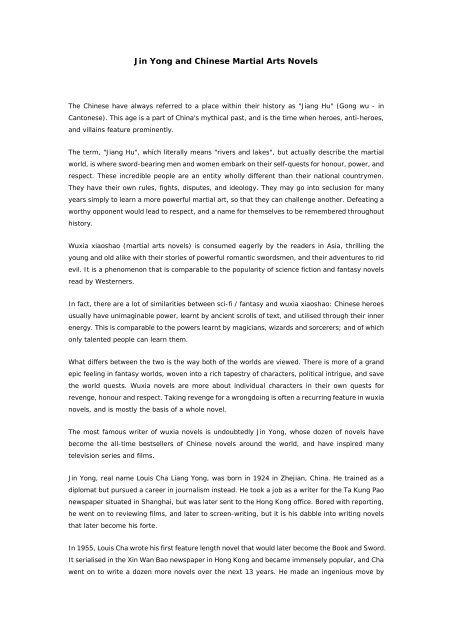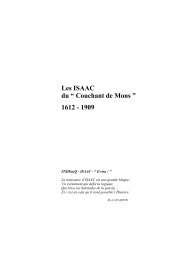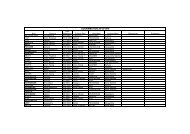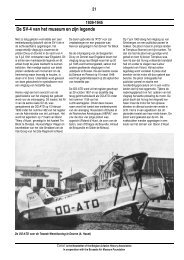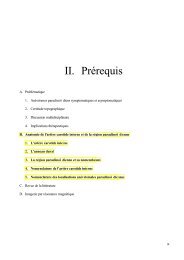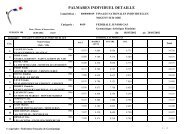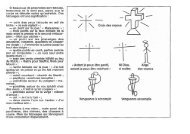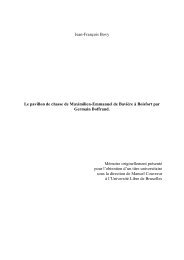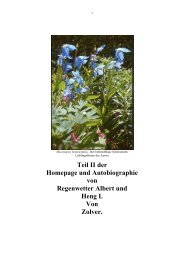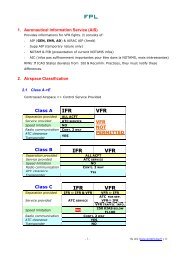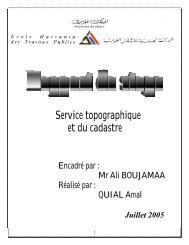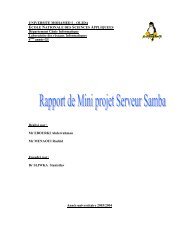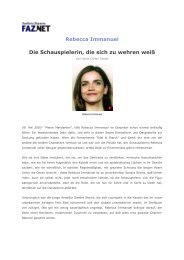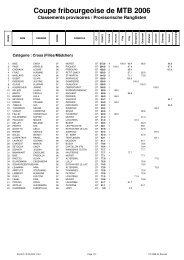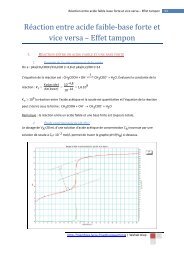Jin Yong and Chinese Martial Arts Novels - MultiMania
Jin Yong and Chinese Martial Arts Novels - MultiMania
Jin Yong and Chinese Martial Arts Novels - MultiMania
You also want an ePaper? Increase the reach of your titles
YUMPU automatically turns print PDFs into web optimized ePapers that Google loves.
<strong>Jin</strong> <strong>Yong</strong> <strong>and</strong> <strong>Chinese</strong> <strong>Martial</strong> <strong>Arts</strong> <strong>Novels</strong><br />
The <strong>Chinese</strong> have always referred to a place within their history as "Jiang Hu" (Gong wu - in<br />
Cantonese). This age is a part of China's mythical past, <strong>and</strong> is the time when heroes, anti-heroes,<br />
<strong>and</strong> villains feature prominently.<br />
The term, "Jiang Hu", which literally means "rivers <strong>and</strong> lakes", but actually describe the martial<br />
world, is where sword-bearing men <strong>and</strong> women embark on their self-quests for honour, power, <strong>and</strong><br />
respect. These incredible people are an entity wholly different than their national countrymen.<br />
They have their own rules, fights, disputes, <strong>and</strong> ideology. They may go into seclusion for many<br />
years simply to learn a more powerful martial art, so that they can challenge another. Defeating a<br />
worthy opponent would lead to respect, <strong>and</strong> a name for themselves to be remembered throughout<br />
history.<br />
Wuxia xiaoshao (martial arts novels) is consumed eagerly by the readers in Asia, thrilling the<br />
young <strong>and</strong> old alike with their stories of powerful romantic swordsmen, <strong>and</strong> their adventures to rid<br />
evil. It is a phenomenon that is comparable to the popularity of science fiction <strong>and</strong> fantasy novels<br />
read by Westerners.<br />
In fact, there are a lot of similarities between sci-fi / fantasy <strong>and</strong> wuxia xiaoshao: <strong>Chinese</strong> heroes<br />
usually have unimaginable power, learnt by ancient scrolls of text, <strong>and</strong> utilised through their inner<br />
energy. This is comparable to the powers learnt by magicians, wizards <strong>and</strong> sorcerers; <strong>and</strong> of which<br />
only talented people can learn them.<br />
What differs between the two is the way both of the worlds are viewed. There is more of a gr<strong>and</strong><br />
epic feeling in fantasy worlds, woven into a rich tapestry of characters, political intrigue, <strong>and</strong> save<br />
the world quests. Wuxia novels are more about individual characters in their own quests for<br />
revenge, honour <strong>and</strong> respect. Taking revenge for a wrongdoing is often a recurring feature in wuxia<br />
novels, <strong>and</strong> is mostly the basis of a whole novel.<br />
The most famous writer of wuxia novels is undoubtedly <strong>Jin</strong> <strong>Yong</strong>, whose dozen of novels have<br />
become the all-time bestsellers of <strong>Chinese</strong> novels around the world, <strong>and</strong> have inspired many<br />
television series <strong>and</strong> films.<br />
<strong>Jin</strong> <strong>Yong</strong>, real name Louis Cha Liang <strong>Yong</strong>, was born in 1924 in Zhejian, China. He trained as a<br />
diplomat but pursued a career in journalism instead. He took a job as a writer for the Ta Kung Pao<br />
newspaper situated in Shanghai, but was later sent to the Hong Kong office. Bored with reporting,<br />
he went on to reviewing films, <strong>and</strong> later to screen-writing, but it is his dabble into writing novels<br />
that later become his forte.<br />
In 1955, Louis Cha wrote his first feature length novel that would later become the Book <strong>and</strong> Sword.<br />
It serialised in the Xin Wan Bao newspaper in Hong Kong <strong>and</strong> became immensely popular, <strong>and</strong> Cha<br />
went on to write a dozen more novels over the next 13 years. He made an ingenious move by
founding his own newspaper Ming Pao Daily, <strong>and</strong> made sure his works only featured in his paper.<br />
Many people bought the paper just to read the serialisation.<br />
His last novel was in 1972, <strong>and</strong> he vowed not to write another novel again. His vow still st<strong>and</strong>s, but<br />
his name lives on.<br />
<strong>Jin</strong> <strong>Yong</strong>'s novels:<br />
Book <strong>and</strong> Sword: Gratitude <strong>and</strong> Revenge 书剑恩仇录<br />
(Shi Gim Yan So Luk)<br />
<strong>Jin</strong> <strong>Yong</strong>'s first published novel. The story revolves around the Red Flower Society, led by its leader<br />
Chan Kar-lok, in its battle to overthrow the Manchu Dynasty. They are forced to rethink their<br />
mission after it is revealed that the current Manchu emperor, Qian Long (Chien Lung), is actually<br />
of Han birth, <strong>and</strong> is the older brother of Chan Kar-lok.<br />
Sword Stained with Royal Blood 碧血剑<br />
(Bik Huet Gim)<br />
Set in the final years of the Ming Dynasty. The story revolves around Yuen Sing-chi, the son of a<br />
Ming general who was wrongfully accused of treason by the Emperor Chong Zhen. Yuen grows up<br />
to be a master martial artist, who wants nothing more than to avenge his father, <strong>and</strong> clear his<br />
name. Complications arise when Yuen falls for the emperor's daughter.<br />
Flying Fox of Snowy Mountain 雪山飞狐<br />
(Zhit Zan Fei Wu)<br />
Not a feature length novel, but a short novel based on the exploits of the Flying Fox Wu Fei. The<br />
story is about Wu Fei's mission to avenge his parents, but <strong>Jin</strong> <strong>Yong</strong> uses Fei to bring out his parents'<br />
history <strong>and</strong> the reason they died.<br />
The Young Flying Fox 飞狐外传<br />
(Fei Hu Wai Chuan)<br />
As the title suggests, this is a short novel about the early years of the Flying Fox, <strong>and</strong> his<br />
relationship with difficult girls. His love for justice <strong>and</strong> fighting for the good is counter-balanced by<br />
his cold-heartedness, <strong>and</strong> his inability to hold down friends.<br />
The Eagle-Shooting Heroes 射雕英雄传<br />
(Ser Dil Ying Hung Juen)<br />
The first part of a trilogy. Set in the Sung Dynasty (12th Century AD China) at a time when the<br />
Mongols were threatening to invade, the story is centred around a young man named Kwok <strong>Jin</strong>g.<br />
Kwok grows up in Mongolia but is of Han descent. He becomes a staunch supporter of the Sung<br />
emperor, <strong>and</strong> vows to stop the Mongol invasion. Kwok falls in love with Wong Yung, the daughter<br />
of Wong Shin-yeung, one of the five greatest martial artists of the time. The others are: Wong
Yat-si (The Sinister East); Ou Yeung-fung (The Evil West); Hung Chat-gung (Northern Beggar);<br />
<strong>and</strong> Duen Zhi-shing (Southern emperor).<br />
The Return of the Eagle heroes 神雕侠侣<br />
(San Dil Hap Lui)<br />
The second part of the trilogy. Set around twenty years after the first book, the Mongol hordes are<br />
invading China; Kwok <strong>Jin</strong>g <strong>and</strong> his wife, Wong Yung, are desperately trying to save the city of<br />
Seung Yeung from falling to the Mongols. Although Kwok <strong>and</strong> his wife are featured prominently in<br />
the novel, the real hero of the book is Yeung Gor, the orphaned son of Yeung Hong (friend/enemy<br />
of Kwok <strong>Jin</strong>g). Yeung has had a troubled upbringing, <strong>and</strong> is more of a rebel of the traditional<br />
themes. He meets a beautiful young woman called Little Dragon Girl, who teaches him martial arts.<br />
Later they fall in love, but due to fateful circumstances, they have to wait another sixteen years to<br />
be finally together.<br />
Heaven Sword <strong>and</strong> Dragon Sabre 倚天屠龙记<br />
(Yee Ting Tung Lung Gey)<br />
Final part of the trilogy. Set around a hundred years after part two, the story revolves around the<br />
two greatest weapons on earth: the Heaven Sword <strong>and</strong> Dragon Sabre, said to be forged by Kwok<br />
<strong>Jin</strong>g <strong>and</strong> Wong Yung. If combined together, the weapons would give the bearer ultimate power, so<br />
that he/she could rid China of the Mongols. The hero of the story is an orphan boy called Cheung<br />
Mo-kei, who gained great power from the Nine Sacred Scrolls. He becomes leader of the Ming Sect,<br />
<strong>and</strong> by the end of the novel, enables one of his comm<strong>and</strong>ers, Zhu Yuan Zhuang, to become the<br />
founder of the new Ming Dynasty; while Mo-kei runs off into the sunset with a Mongol princess.<br />
Demi Gods <strong>and</strong> Semi Devils 天龙八部<br />
(Ting Lung Bak Bo)<br />
Regarded as one of <strong>Jin</strong> <strong>Yong</strong>'s greatest pieces of work. Demi Gods <strong>and</strong> Semi Devils is a very long<br />
story about the different behaviour aspects of people turned good/bad. The three heroes of the<br />
book are: Qill Fung, the leader of the Beggar society. Brought up by a Han couple, he believed<br />
himself to be of Han descent, but when it is revealed that he is actually a Khitan, his fellow<br />
members forces him out; Duen Yuet, a prince of Dali, is a young happy-go-lucky man whose good<br />
luck gets him the best of everything; <strong>and</strong> finally, Zhu, the cowardly monk, whose inability to fight<br />
becomes much a farce. But he overcomes his fears <strong>and</strong> becomes a master martial artist.<br />
Way of the Heroes 侠客行<br />
(Hap Hak Hang)<br />
Story about twins, whose separation at birth leads them to have very different personalities. One<br />
is a serious goody-two-shoes, while the other is a mischievous brawler, whose obsession with good<br />
looking girls net him half a dozen wives.
Requiem of Ling Sing 连城诀<br />
(Ling Sing Kuet)<br />
One of the most depressing stories ever written by <strong>Jin</strong> <strong>Yong</strong>. Yun has had a poor upbringing, but his<br />
friendship with a girl gives him hope. However, she goes off with another bloke, which leaves poor<br />
Yun heartbroken. He learns some damn good martial arts, but is betrayed by people he thought to<br />
be friends.<br />
The Proud Smiling W<strong>and</strong>erer 笑傲江湖<br />
(Sill Ou Gong Wu)<br />
One of the most famous of his works, this was different in respect that there were a number of<br />
anti-traditional themes within the story. Main hero Ling Wu Chung loses his girlfriend to another<br />
bloke; is betrayed by his master, <strong>and</strong> later faces Asia the Invincible.<br />
Deer <strong>and</strong> the Cauldron aka Duke of Mount Deer 鹿鼎记<br />
(Luk Ding Gey)<br />
Another one of <strong>Jin</strong> <strong>Yong</strong>'s classics, <strong>and</strong> the last one he ever wrote. This is more of a comedy than<br />
a serious outlook on the jiang hu world. The hero Wai Siu Bo is more of an anti-hero, whose<br />
characteristics are certainly the very opposite of a traditional hero. He doesn't know any martial<br />
arts at all, <strong>and</strong> his crude womanising ways is certainly something a true hero would frown upon.<br />
However, his endearing qualities mean that he is quick to make friends, even turn enemies into<br />
friends, <strong>and</strong> he remains one of the best loved characters created by <strong>Jin</strong> <strong>Yong</strong>.


